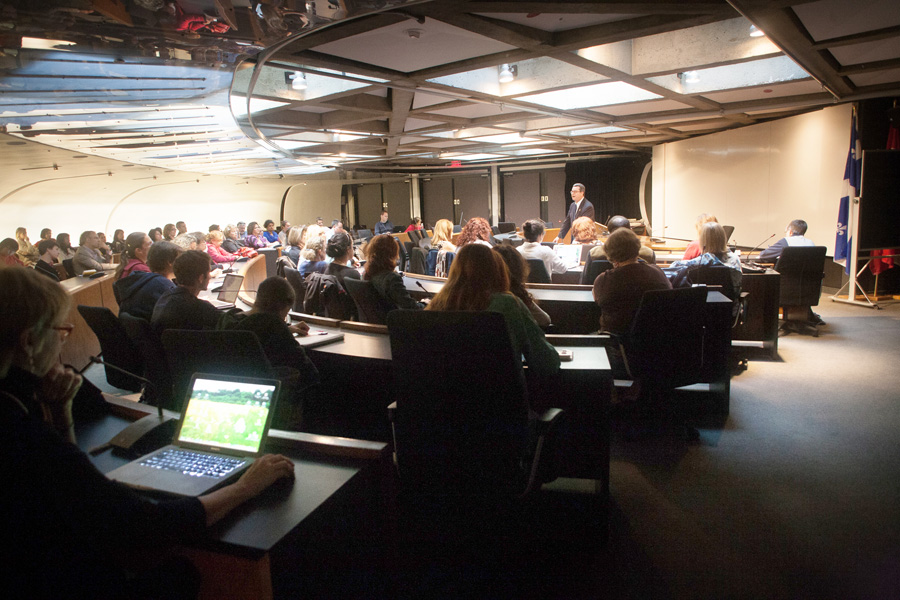On my first day of class in Leacock 26 in Fall 2016, I awaited eagerly to discover what my introductory lecture to McGill University would be like. It was not the lecture that I had hoped for. Instead of receiving an explanation of the supply and demand model, my hearing aids amplified the construction on the Leacock roof, so instead of my professor, all I heard was hammering. This is one of many instances when I felt at a disadvantage for being hearing impaired at McGill. The administration and professors must work to improve the quality of education for students who are hearing impaired or have other disabilities in general, so that their success is not compromised by administrative failure to accommodate students.
I often feel intimidated when I try to seek help for academic issues related to my hearing impairment, given how uncommon my disability is. Growing up in the United States, I was part of roughly 0.0025 per cent of the American population born with detectable hearing loss. Although as a hearing-impaired student, I may be a minority, this does not mean I should accept a lack of support that puts me at a disadvantage to people with perfect hearing.
Without a doubt, my biggest issue last year was the persistent construction noise. The purpose of hearing aids is to amplify the sound of a talking person to a level that is akin to what a person without hearing loss hears. However, when sitting in classes in buildings that were under construction, I found that my hearing aids amplified the construction noise over my classmates and professors. I had to stop wearing my hearing aids because, unsurprisingly, hearing what my professor had to say was more important than the noise of a drill.
Another major obstacle that I face is the inability to hear my classmates’ opinions and answers in large lecture halls—especially if they are physically far away and I cannot read their lips. As I result, I try to enroll in smaller classes, if possible. Still, my hearing impairment should not have to hold me back from participating in classes that I’m enrolled in.
While construction noise is unavoidable, there are measures that McGill can put into place to improve the academic experiences of hearing-impaired students. To replicate what students may miss due to the noise, McGill can offer them a way to access recordings or transcriptions of lectures. For example, the university could place microphones around large lecture halls for students to speak into, and encourage professors to repeat student responses and questions aloud for the rest of room.
Despite a general lack of support from McGill, I have received some much-appreciated help to make up for the disadvantages I face in the classroom—especially from the Office for Students with Disabilities (OSD), where I am registered to receive class notes from other students. While the promptness and detail of these notes have varied immensely, I have also had notetakers go beyond what they had to do. Luckily, in classes where I either did not have a note taker, or the notes I received were subpar, I found classmates who were more than willing to send me their notes.
Although I am grateful for these classmates, the fact that I have had to seek out notes is indicative of flaws that exist in programs, such as note-taking services, that are supposed to be equitable measures to assist students with disabilities. The OSD needs to monitor more closely to ensure the quality and timeliness of these notes. Granted, this is not entirely its fault—the OSD is understaffed, with only 11 staff members for over 1,800 students. In order for the OSD to more successfully run existing programs, McGill University must help by giving the OSD financial support to hire more staff. In a statement in a March 2015 Senate meeting, Professor Anthony C. Masi and Deputy Provost of Student Life and Learning Ollivier Dyens explained that the OSD has sufficient resources at its disposal. However, student experiences like mine suggest otherwise.
As a hearing impaired student at McGill, my concerns are twofold: I want to hear lectures and conversations in my classes, and I do not want to be ignored because my disability is not common for people my age. The challenges that come with having an uncommon disability are certainly not limited to hearing impairment, and none of the necessary accommodations should be neglected because I am a minority on McGill campus.








